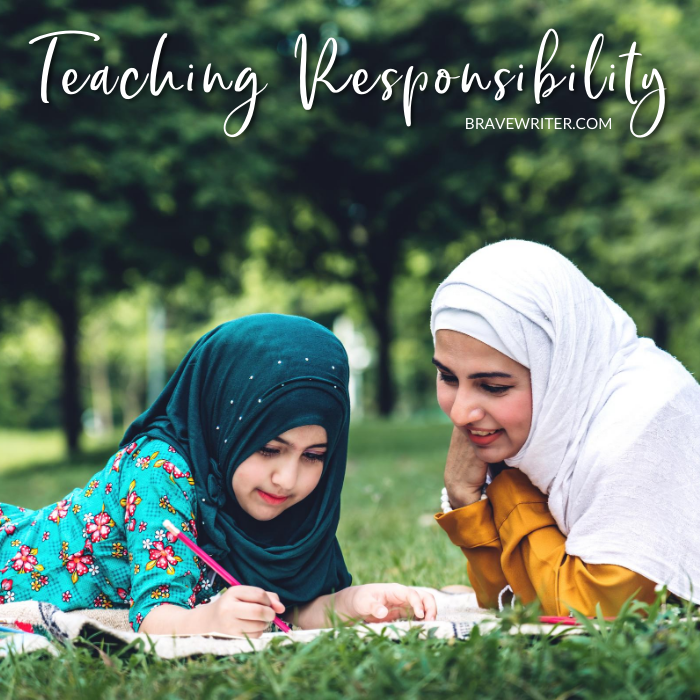Teaching Responsibility

You may find your child cooperates more readily with more control over his or her learning experience. Most kids know there are lessons to complete or a set of problems to finish. When they refuse to do what they’re asked, or when they whine and complain, parents get into power-over thinking—requiring kids to do what we say or else. If we shift to a power-with attitude, we tap into a child’s self awareness and desire to grow.
So instead of “assigning” twenty math problems or six sentences of copywork or three pages of reading or five grammar declensions, pause.
Ask your child:
- “How much do you feel you can do?”
- Or “How many do you have the energy to complete?”
In other words, give your child a chance to look inside to see how much energy and commitment your child has for the task.
She might say: “One problem.” You know, to test you. To see if you are interested in what she’s willing to execute.
If you reply saying, “Great! Let me know when you’re finished and we’ll high five,” she may be stunned into silence. She may even find herself doing more problems (I hear this a lot). Permission to pay attention to energy level is a powerful tool in the learning kit!
Another child might be overly ambitious saying 50 math problems. When he loses steam after 12, affirm all he got done and remind him he can set a lower goal tomorrow.
The purpose of this is to slowly, subtly shift responsibly for learning over time from you to your child. When we show respect for a child’s energy as it undulates day to day, we teach our kids how to be disciplined and self aware people.
We create a partnership of learning, rather than “doing education to our children.”
This post is originally from Instagram and @juliebravewriter is my account there so come follow along for more conversations like this one!


















